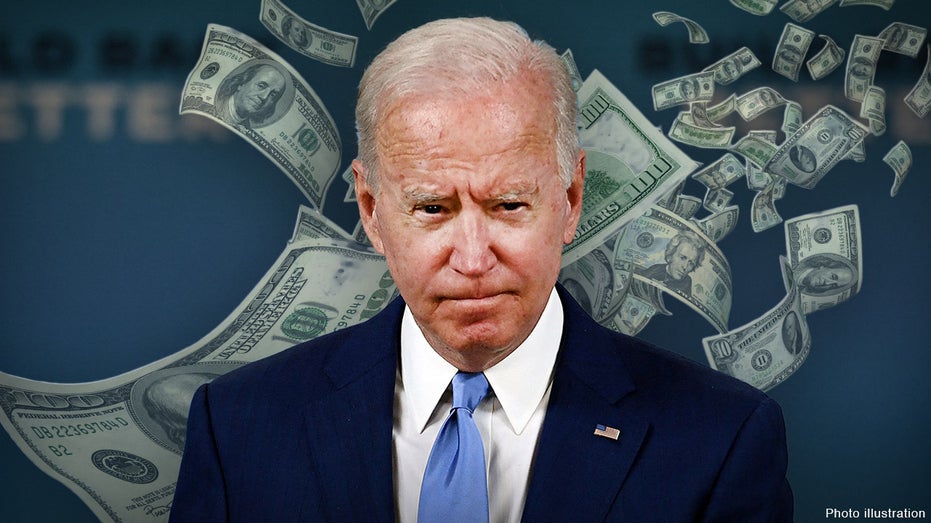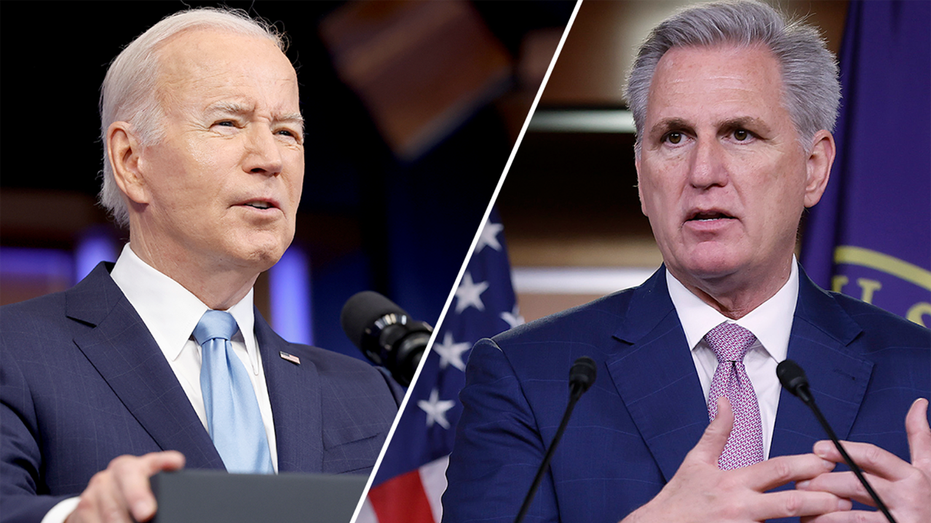National debt hits $32 trillion two weeks after debt ceiling deal
The government can keep borrowing without any limit through 2024
Sen. Roger Marshall warns national debt is number one threat to US national security
Sen. Roger Marshall, R-Kan., makes his case why he voted 'no' on the debt ceiling deal legislation on 'Maria Bartiromo's Wall Street.'
The U.S. national debt hit $32 trillion for the first time ever this week.
Treasury Department data released Friday said federal borrowing crossed the $32 trillion mark on Thursday, less than two weeks after President Biden signed legislation into law that suspended the debt ceiling. That bill, which also included tens of billions in spending cuts demanded by House Republicans, will allow the government to borrow whatever it wants until the end of 2024, when the debt ceiling suspension ends.
When Biden signed the bill into law on June 3, the total national debt stood at $31.47 trillion. On the first business day after the debt ceiling was suspended, federal borrowing jumped nearly $400 billion, reflecting pent-up borrowing needs such as payments to federal worker retirement plans that the Treasury Department delayed in order to avoid breaching the ceiling.
As of Thursday, the national debt stood at $32.04 trillion.
FEDERAL DEFICIT TOPS $2 TRILLION OVER LAST 12 MONTHS

The national debt hit $32 trillion for the first time in history, just days after President Biden signed a bill suspending the debt ceiling. (Fox News / Fox News)
The national debt grows as long as the federal government keeps spending more than it collects. In the first eight months of the current fiscal year, the government has already spent $1.2 trillion more than it collected. Annual budget deficits of $1 trillion or more are expected in the foreseeable future under current law, but that deficit is much lower than the deficits racked up by the government during the COVID-19 pandemic.
In 2020, the year COVID hit, the government spent a record-high $3.1 trillion more than it took in. The budget deficit fell a little to $2.8 trillion in 2021.
HOW DOES BIPARTISAN BUDGET, DEBT LIMIT DEAL IMPACT SPENDING, DEFICIT?

President Biden and House Speaker Kevin McCarthy negotiated a deal that cut some federal spending, but also suspended the debt ceiling and allowed unlimited federal borrowing through 2024.
Biden has boasted about the reduction of the budget deficit as the COVID emergency ended. But annual deficits of $1 trillion or more have conservatives worried, as the national debt has been larger than the size of the U.S. economy for the last few years.
Recent passage of the costly Inflation Reduction Act, ongoing military aid to Ukraine and the broad resistance in Congress to significant spending cuts are expected to push the annual budget deficit closer to $2 trillion in the coming years.
Additionally, higher interest rates caused by the Federal Reserve are expected to make interest payments on the national debt more costly than they have been in decades, which means even more borrowing will be needed to stay current on those payments.
BIPARTISAN BUDGET DEAL WILL LEAVE NEW CONGRESS, POSSIBLE NEW PRESIDENT FACING RENEWED BUDGET DEBATE

Committee for a Responsible Federal Budget President Maya MacGuineas said a "serious change" is needed to reverse the federal government's fiscal outlook. (Fox News)
Maya MacGuineas, president of the Committee for a Responsible Federal Budget, said this week that recent numbers show that the government’s fiscal picture needs a "serious change."
"If we really want to get serious about debt and deficits, we need to have serious conversations about all areas of the budget — spending, revenues, Social Security, Medicare, and everything in between," she said. "Much more will need to be done to ensure we don’t burden future generations with a smaller economy and a larger national debt."
CLICK HERE TO GET THE FOX NEWS APP
The national debt hit $31 trillion for the first time in October, less than nine months ago.




















